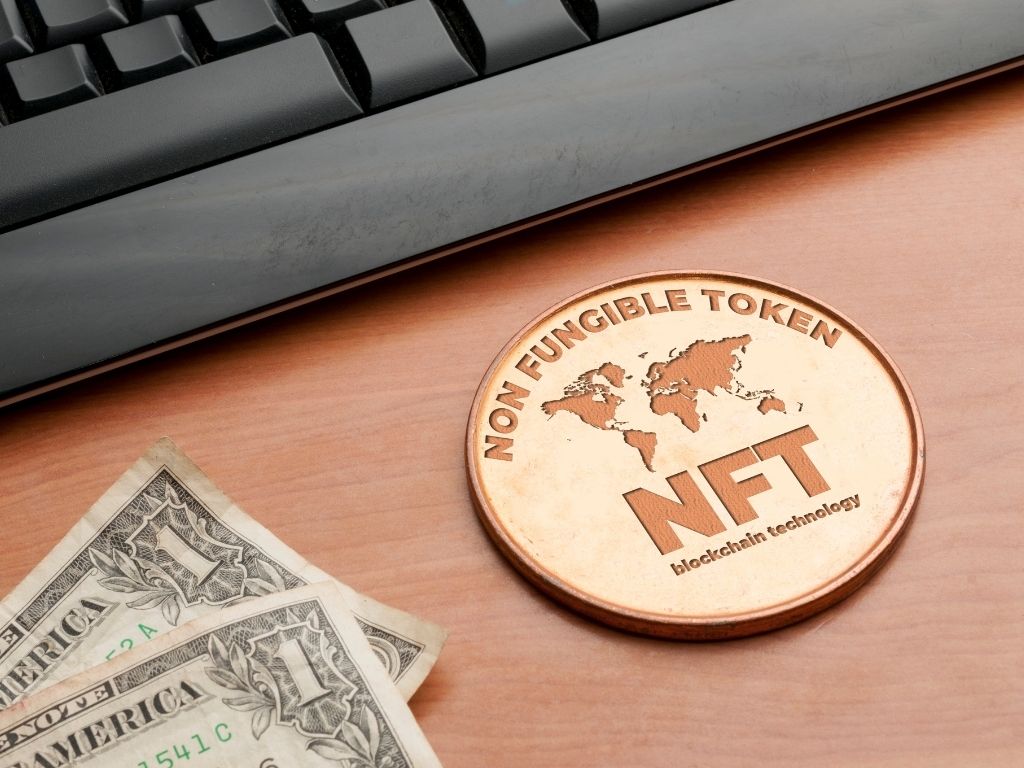What Is CCo Copyright In NFT Space?
Non-fungible tokens (NFT) have gained enormous popularity over the past two years, but they’re still many aspects that are unknown to people, like CCo copyrights. With high-profile projects like Bored Ape Yacht Club (BAYC) or CryptoPunks selling NFTs for anywhere from a few thousand and over a million dollars each. Some NFT initiatives have even received celebrity endorsements, such as World of Women, which signed an exclusive cooperation agreement with Reese Witherspoon’s production firm Hello Sunshine in February.
Many holders are optimistic about the potential long-term worth of NFTs due to intellectual property rights and a copyright designation known as CC0, despite some in the crypto community having doubts that the wave of the profile picture (PFP)-focused NFT businesses will remain relevant.
Intellectual property (IP) ownership and NFTs
NFTs are blockchain-based digital assets. They are used to confirm ownership of an item because they are distinctive and cannot be duplicated.
Buying an NFT can be difficult for inexperienced individuals with digital collectibles because possessing one does not always imply ownership of a tangible, physical thing. This makes it difficult to comprehend what you “possess” when buying an NFT.
Giving holders special access to events, membership groups, goods, and long-term benefits is one of the ways NFT communities have made the value of their NFTs more tangible. The utility is the name given to this strategy. But some contend that the long-term worth of intellectual property is more valuable than unlocking perks (IP).
An NFT purchase generates a permanent ownership record that exists on the blockchain. Buying an NFT announces to the world that you own a work of digital art, and with that ownership may come the right to commodify it, similar to planting a flag post into the moon.
A financial lawyer who specializes in cryptocurrencies and digital assets, Jeff D. Karas, claims that “intellectual property is kind of like an umbrella phrase.” Trademarks, patents, and copyrights are the three legal types of IP ownership that fall under the definition of intellectual property.
Depending on the ownership rights a project grants its holders, possessing an NFT may grant you the right to reprint the art linked with it and stamp it all over any type of commodity you wish to sell, from T-shirts to baseball hats to whiskey and even to cereal and candles.
For instance, the parent firm of BAYC, Yuga Labs, disclosed how owners might use their NFTs for derivative works in August 2022 when it granted the IP rights to CryptoPunks and Meebits. Before that, Andy Nguyen, a BAYC holder, created a real-world burger establishment in Long Beach, California, modeled after his NFT, Bored Ape #6184, which he had bought in March for 90 ether (ETH), or almost US$267,000.
In Nguyen’s case, the NFT’s value lay in the ownership record proving his permission to use the IP for his fast-food company, not in the JPEG or the associated information. While this is happening, the NFT licensing firm Snowdrop is developing a branding and newsletter service that will link NFT owners with businesses that want to use their artwork for items like beverages and creams.
Also Read: Top 4 Copyright Essentials For Everyone In NFT world
CC0 described
However, some fans of NFT believe that NFT artwork shouldn’t be owned by just one person or business. A copyright classification known as CC0, which stands for a particular “no rights reserved” copyright, is rising among the NFT community.
The most liberal Creative Commons license is CC0. Anyone may use the work however they see fit without permission, including for display, performance, reproduction, publication, and modification. A creator may share their work entirely under CC0 for any reason, including for profit.
Karas claims that the CC0 categorization is comparable to the public domain classification, which typically includes historical artwork and works by deceased artists.
Digital content creators, including those of code, text, music, images, and videos, can waive all copyright and related rights on their original creations by designating their work as CC0. Neither does CC0 place any restrictions on how other people can use or share the work nor does it grant one individual exclusive rights over it.
Through spinoff ventures and derivative artwork, Nouns, an experimental Ethereum-based CC0 initiative, has produced millions in trade volume. The project’s primary underlying assumption is that the value of the original NFT will increase directly to how widely disseminated the derivative work is. Some claim that because there is no restriction on how many times a person’s NFT may be duplicated, CC0 classifications provide projects more value.
Conflict over CCO
The collection of profile photos Early in August, Moonbirds made headlines by announcing that the project would switch to a CC0 license rather than grant NFT holders exclusive rights to exploit the Moonbirds IP.
Naturally, not all NFT holders were content. After Moonbirds announced the conversion to CC0, some people complained that they had to back out of licensing agreements because they no longer had the exclusive right to license the artwork.
Drawbacks of CC0
Even though the CC0 classifications are democratic, Karas believes they could have some drawbacks.
There are so many fantastic derivative projects, but perhaps you don’t want them since their values might not align with your project.
For instance, the reputation of the artist, the NFT community, and the piece of art itself all be harmed if an extreme group used an artist’s CC0 image to inspire violence and the image went viral. Because you get to control the story, Karas says, “That’s the strong argument where it would make sense to hang onto your IP rights as a project.”
However, not everyone believes that CC0’s drawbacks make it ineffective. Since no restrictions or limitations limit the free sharing of art, many people feel that doing so satisfies the genuine essence of art. Some people, like the CC0 investment decentralized autonomous organization (DAO) C0C0, support CC0 ecosystems because they promote an open-source information-sharing culture that some believe is fundamental to the Web3 ethos.
Top venture capital firm a16z recently argued in favor of novel NFT IP licenses that were motivated by the work of Creative Commons and were dubbed the “Can’t Be Evil” licenses. These open-source contracts, created especially for NFTs, specify various commercial and private use rights between NFT creators and customers.
What legacy NFT inventors and communities want to leave behind and how they want to encourage financial gain among NFT holders is ultimately up to them to decide.
Stay informed with daily updates from Blockchain Magazine on Google News. Click here to follow us and mark as favorite: [Blockchain Magazine on Google News].
Get Blockchain Insights In Inbox
Stay ahead of the curve with expert analysis and market updates.
latest from tech
Disclaimer: Any post shared by a third-party agency are sponsored and Blockchain Magazine has no views on any such posts. The views and opinions expressed in this post are those of the clients and do not necessarily reflect the official policy or position of Blockchain Magazine. The information provided in this post is for informational purposes only and should not be considered as financial, investment, or professional advice. Blockchain Magazine does not endorse or promote any specific products, services, or companies mentioned in this posts. Readers are encouraged to conduct their own research and consult with a qualified professional before making any financial decisions.

 Bitcoin
Bitcoin  Ethereum
Ethereum  Tether
Tether  XRP
XRP  Solana
Solana  Dogecoin
Dogecoin  USDC
USDC  Lido Staked Ether
Lido Staked Ether  Cardano
Cardano  TRON
TRON  Avalanche
Avalanche  Toncoin
Toncoin  Wrapped stETH
Wrapped stETH  Chainlink
Chainlink  Shiba Inu
Shiba Inu  Wrapped Bitcoin
Wrapped Bitcoin  Sui
Sui  Stellar
Stellar  Hedera
Hedera  Polkadot
Polkadot  WETH
WETH  Hyperliquid
Hyperliquid  Bitcoin Cash
Bitcoin Cash  LEO Token
LEO Token  Uniswap
Uniswap  Litecoin
Litecoin  Pepe
Pepe  Wrapped eETH
Wrapped eETH  NEAR Protocol
NEAR Protocol  Ethena USDe
Ethena USDe  USDS
USDS  Internet Computer
Internet Computer  Aave
Aave  Aptos
Aptos  Cronos
Cronos  POL (ex-MATIC)
POL (ex-MATIC)  Mantle
Mantle  Ethereum Classic
Ethereum Classic  Render
Render  Monero
Monero  Virtuals Protocol
Virtuals Protocol  WhiteBIT Coin
WhiteBIT Coin  MANTRA
MANTRA  Bittensor
Bittensor  Dai
Dai  Artificial Superintelligence Alliance
Artificial Superintelligence Alliance  Arbitrum
Arbitrum 



